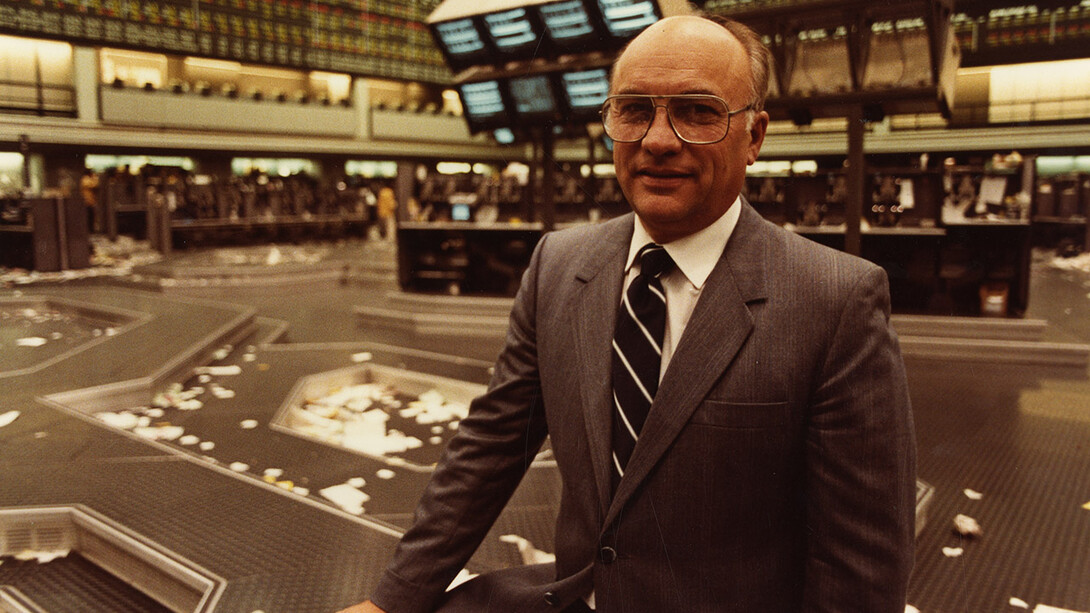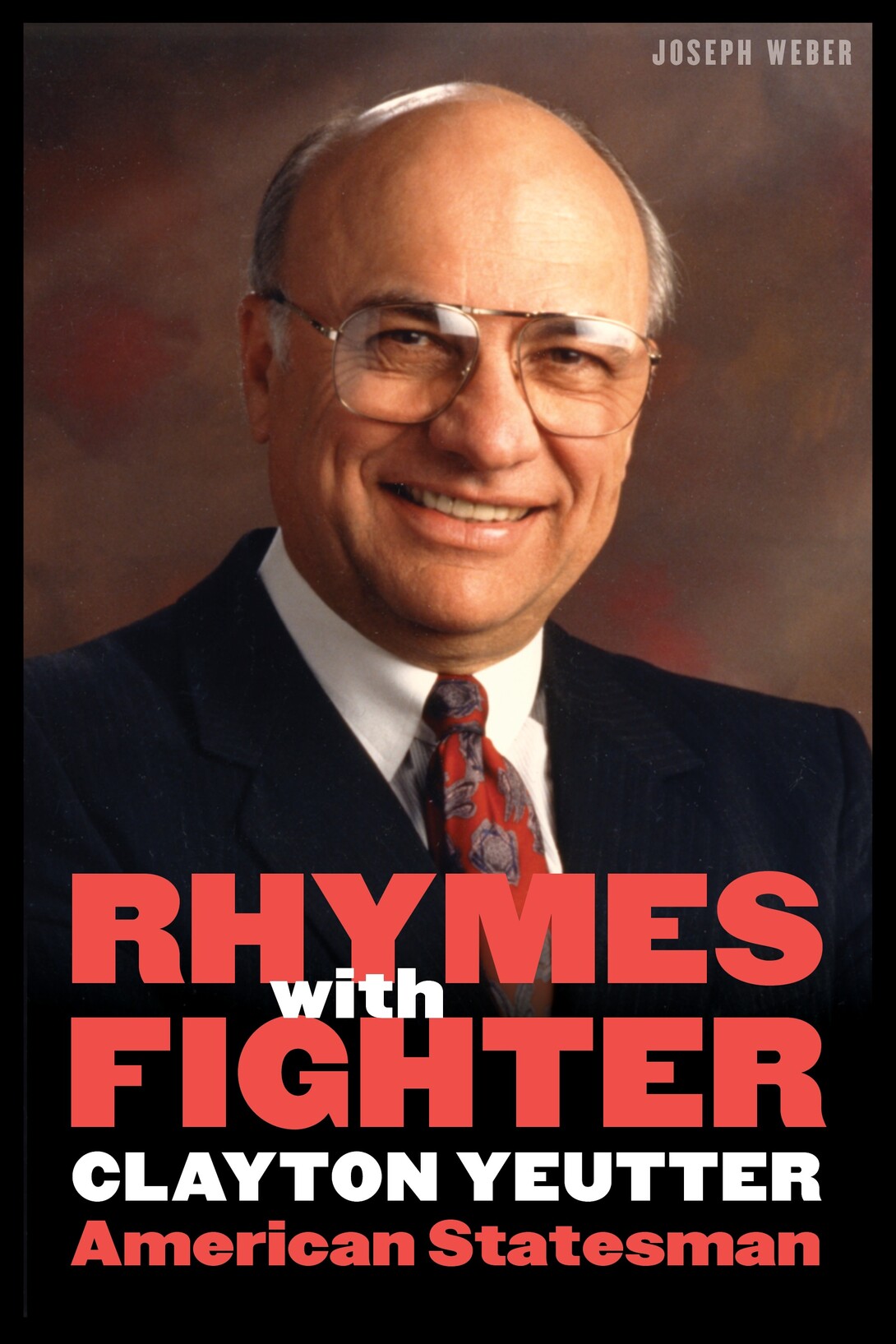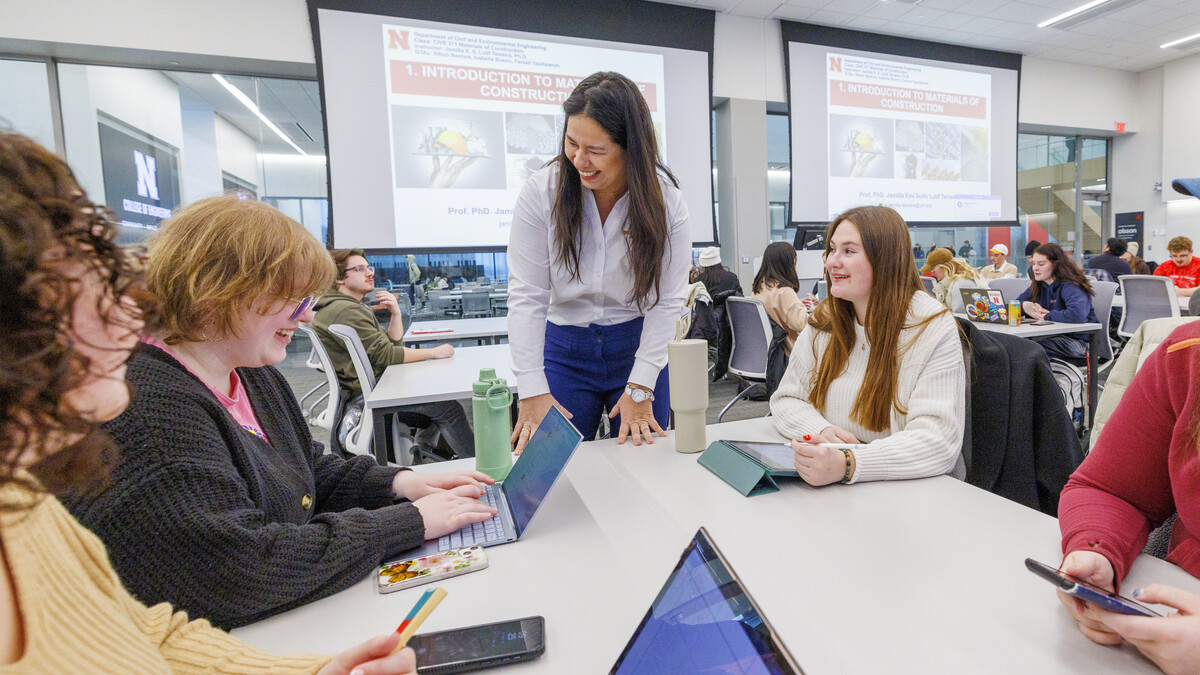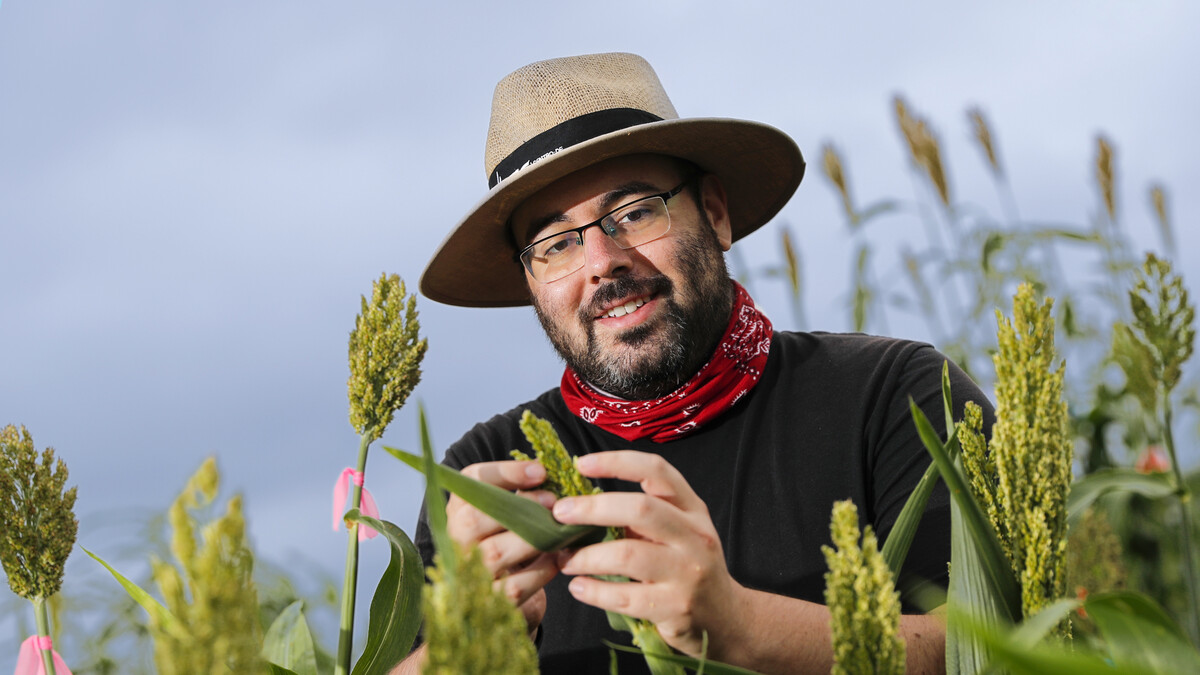
U.S. Trade Representative Katherine Tai headlined an event celebrating a new biography of former U.S. Trade Representative and Secretary of Agriculture Clayton Yeutter on April 28 in Washington, D.C.
“He is a legend,” Tai said of Yeutter in her remarks. “I know that as the 19th U.S. trade representative, I very much stand on his shoulders, as I do on the shoulders of every U.S. trade representative before me.”

The book, “Rhymes with Fighter: Clayton Yeutter, American Statesman” by Joseph Weber, associate professor of journalism at Nebraska, celebrates the life and career of Yeutter, who grew up in Eustis, Nebraska, attended the University of Nebraska–Lincoln and embarked on a career in which he worked with four U.S. presidents and helped shape international trade policy. “Rhymes with Fighter” was published in December 2021 by the University of Nebraska Press.
The event drew together much of the Washington trade policy community, with more than 100 of Yeutter’s family, friends and former colleagues in attendance at Hogan Lovells, the law firm where Yeutter worked in his later years. The university’s Clayton Yeutter Institute of International Trade and Finance, the Washington International Trade Association and the Association of USTR Alumni cosponsored the event, which also recognized the 60th anniversary of the Office of the U.S. Trade Representative.
The program included remarks from Nebraska Congressmen Adrian Smith and Don Bacon and former U.S. Trade Representative Carla Hills.
Smith represents Nebraska’s Third Congressional District and is the ranking Republican on the trade subcommittee of the House Committee on Ways and Means. He recalled Yeutter’s enthusiasm when he saw a Nebraskan join the House committee with primary jurisdiction over trade policy.
“To experience his excitement that a Nebraskan was joining the committee inspired me to do more and to articulate why we have trade and what trade can accomplish,” Smith said. “It goes without saying we Nebraskans are proud of Clayton Yeutter, but America is better off and the world is better off for his public service, and we are so grateful.”
Bacon, who represents Nebraska’s Second Congressional District, emphasized the importance of agricultural exports to Nebraska’s economy, citing the state as No. 1 in beef production and popcorn and a leading producer of several other crops, including corn, soybeans and dry edible beans.
Hills succeeded Yeutter as U.S. trade representative, leading the trade agency while Yeutter served as secretary of agriculture for President George H.W. Bush. She spoke about their close partnership while both served in cabinet positions crucial to U.S. trade policy.
“(Yeutter) was a real partner,” she said. “I don’t think we would’ve accomplished what we accomplished if we hadn’t been able to deal as a partnership on agriculture.”
Among those achievements were negotiating with countries newly independent of the former Soviet Union and concluding the North American Free Trade Agreement, which built upon the U.S.-Canada Free Trade Agreement Yeutter negotiated as U.S. trade representative.
Yeutter’s Nebraska roots also figured prominently in the evening’s remarks. Recounting the process of writing the book, Weber described the importance of Yeutter’s childhood participation in 4-H to his later career success.
“Clayton learned both how to show cattle and how to give speeches — indispensable skills for him,” Weber said.
He also emphasized Yeutter’s education at the University of Nebraska–Lincoln as key to launching his career.
“One of the things that struck me about his extraordinary career is that it almost did not happen,” he said, referring to the important role played by those who urged him to pursue higher education.
Warren Maruyama, a partner at Hogan Lovells and longtime friend and colleague of Yeutter’s, noted Yeutter’s trajectory from a small Nebraska farm doing schoolwork by the light of a kerosene lamp to the highest levels of the U.S. government, where he helped transform world trade.
“His life shows one of America’s enduring strengths,” Maruyama said.
Yeutter died in 2017, but his passion for trade continues through the university’s Clayton Yeutter Institute of International Trade and Finance. The institute prepares students for leadership roles in international trade and finance, supports interdisciplinary research related to trade and increases public understanding of these issues.
“As those who worked alongside him and knew him best have said, Clayton was a visionary and American agriculture — and the world — continue to benefit from his achievements in international trade while the next generation builds upon them,” Yeutter Institute Director Jill O’Donnell said. “He was also very prescient when it came to educating students to navigate a rapidly changing world and there is no better legacy to guide us in doing that here in Nebraska than that of Clayton Yeutter.”







